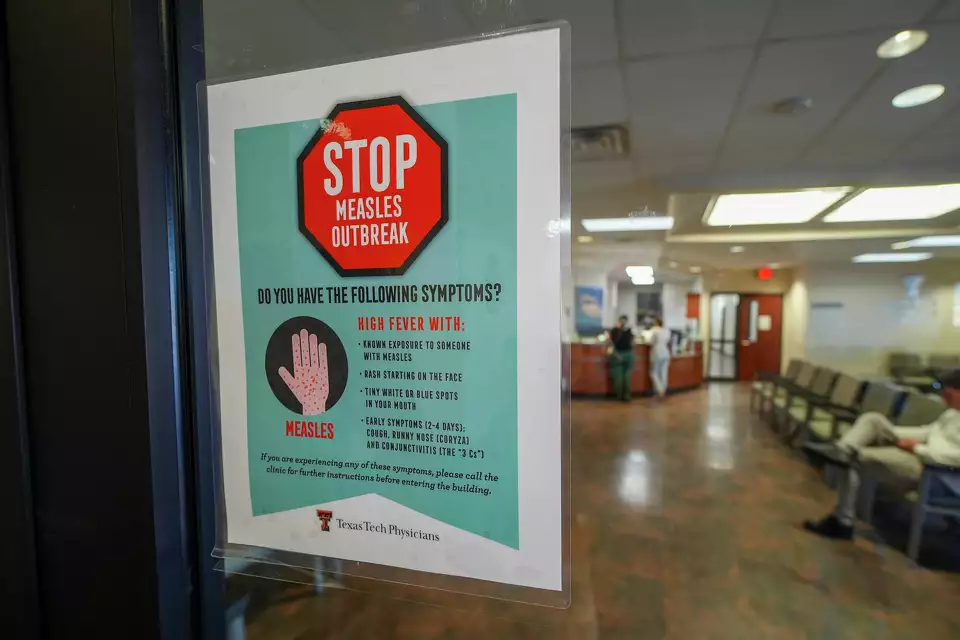News Staff![]() June 9, 2025
June 9, 2025
2K views 0 Comments 0 Likes

By Larry Bucshon (Guest writer)
As a physician who recently retired from representing Indiana in Congress, I have closely followed the evolving national discourse around vaccines with concern. Since late January, a measles outbreak in West Texas and New Mexico has led to more than 1,000 confirmed cases of the disease in 30 states.
This outbreak comes at a pivotal moment for public health, one that demands thoughtful reflection on the history and efficacy of vaccines and how we communicate about them and science more broadly in our communities.
Take away the news headlines and the social media debates, and one truth remains: Vaccines save lives. They are among the most powerful tools in medicine, and have for decades prevented disease, reduced suffering and protected communities – full stop. Their benefits far outweigh the rare side effects, and American innovation has paved the way for these achievements.
The numbers speak for themselves. Vaccinations through the federal Vaccines for Children program prevented 32 million hospitalizations and saved more than 1 million lives between 1994 and 2023.
Fortunately, most Americans have not forgotten that. A recent survey from the Partnership to Fight Infectious Disease found that roughly three-quarters of voters view vaccines favorably. Nearly 90% of parents of children under 18 get their children vaccinated based on their doctor's recommendation.
More than 80% want the U.S. to continue leading in vaccine development, nearly 75% support broad access to vaccines approved by the U.S. Food and Drug Administration, and more than 70% say they would embrace new vaccines to combat diseases like Alzheimer's and cancer.
Yet among the nearly 60% of Americans who encounter vaccine-related content through social media, podcasts and online forums, one-third report that they see more about the risks than critical benefits.
Unfortunately, this shifting narrative is affecting behaviors in communities across the country. According to the CDC, childhood vaccination rates have declined for four consecutive years, from 95% of kindergartners in the 2019-2020 school year to less than 93% during the 2023-2024 school year. Alarmingly, in 14 states, fewer than 90% of kindergartners are fully vaccinated against measles.
A couple of percentage points might sound small. But that decline means that 280,000 more children lack sufficient protection against measles. Declining vaccination rates are already taking a toll. In 2024, measles cases hit a 24-year high of 285, with 40% requiring hospitalization.
In addition to the tragic loss of life, the economic cost of declining vaccination rates is staggering. In 2018 and 2019, New York City spent $8.4 million containing a single measles outbreak.
These public health issues do not just strain our health care resources. They lead to significant losses in productivity and a great deal of preventable suffering. We must turn the tide before it becomes a massive wave and build on the foundation of strong and successful innovation when it comes to vaccines.
Policymakers must also prioritize transparency, rigorous investigations and proactive health policies. Our leaders need to strengthen vaccine programs, expand access to them and enhance disease monitoring to protect public health. While cutting government waste is important, the funding and staff behind initiatives like the Vaccines for Children Program should be protected.
As we navigate this critical moment in public health, the focus should remain on upholding truth without bias. Americans do not want coercion or condescension. They want trustworthy, transparent and well-informed guidance. The success of disease prevention and America’s health depend on it.
Larry Bucshon, M.D., a Republican, represented Indiana's 8th Congressional District from 2011 to 2025. Previously, he practiced as a cardiothoracic surgeon for nearly two decades. This article originally ran in U.S. News & World Report.

Desert Local News is an invitation-only, members-based publication built on fact-checked, non-biased journalism.
All articles are publicly visible and free to read, but participation is reserved for members—comments and discussion require an invitation to join.
We cover local, state, and world news with clarity and context, free from political agendas, outrage, or misinformation.
Comments